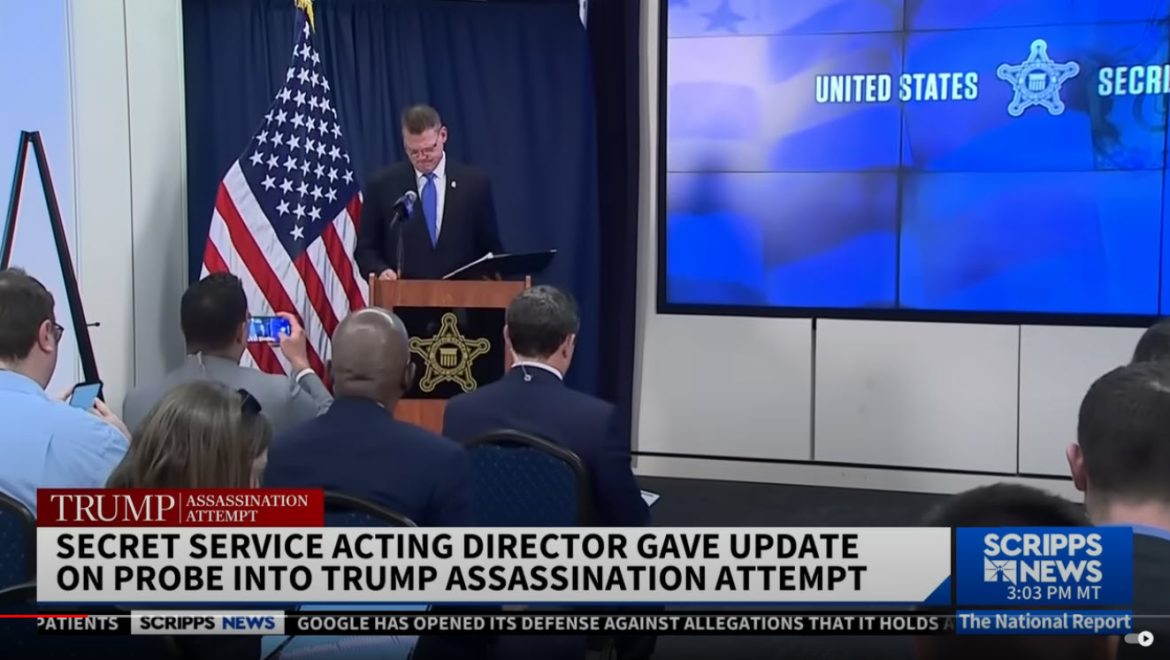Acting Secret Service Director Ronald Rowe revealed today that the agency is undergoing a comprehensive overhaul in the wake of an assassination attempt on former President Donald Trump. In a press briefing, Rowe detailed a series of failures during the July 13th incident in Butler, Pennsylvania, citing communication breakdowns and what he described as “complacency” among some agents. He emphasized that those responsible will “be held accountable” as part of a broader effort to improve security protocols.
The assassination attempt in Pennsylvania marked the first known effort on Trump’s life and exposed vulnerabilities in the Secret Service’s coordination with local law enforcement. According to Rowe, agents on the ground did not provide clear instructions to local police, creating confusion during a critical moment. In addition to communication failures, Rowe acknowledged that drones, which could have been crucial in providing surveillance, were not deployed.
“We had multiple lapses in our operational procedures that day,” Rowe admitted. “Our agents’ lack of coordination with local authorities and the failure to use essential technology like drones are issues that need immediate attention. There was complacency, and that is unacceptable.”
This week’s press event came on the heels of a second assassination attempt on Trump, which occurred last Sunday in Florida. The Florida incident has heightened the Secret Service’s state of readiness, with Rowe assuring that Trump now receives the same level of protection as President Joe Biden. The agency is also taking additional measures to prevent further security breaches, including improving training, increasing collaboration with local law enforcement, and ensuring new technology like drones is fully integrated into security plans.
Rowe outlined a series of reforms, including heightened accountability for agents and improvements in communication protocols. “We are actively re-evaluating all our procedures to prevent anything like this from happening again,” he said. “The safety of our protectees is paramount, and we will do whatever it takes to uphold that responsibility.”
The July incident in Butler, Pennsylvania, was a wake-up call for the agency, which has faced scrutiny in recent years over lapses in security. The ongoing threats against Trump, now a 2024 presidential candidate, underscore the continued challenges the Secret Service faces in protecting high-profile political figures in a polarized environment.
Political analysts note that these security lapses are concerning given Trump’s prominence in both political and public life. “The Secret Service must adapt to evolving threats, particularly when dealing with someone as polarizing and high-profile as Trump,” said security expert David Rhodes. “This overhaul is not just necessary—it’s long overdue.”
Despite the challenges, Rowe reiterated the agency’s commitment to safeguarding Trump and all individuals under its protection. “We’re making the necessary changes and enhancements to ensure the safety of all those we protect,” he assured.



